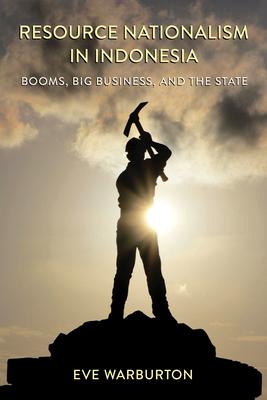In Resource Nationalism in Indonesia, Eve Warburton traces nationalist policy trajectories in Indonesia back to the preferences of big local business interests. Commodity booms often prompt more nationalist policy styles in resource-rich countries. Usually, this nationalist push weakens once a boom is over. But in Indonesia, a major global exporter of coal, palm oil, nickel, and other minerals, the intensity of nationalist policy interventions increased after the early twenty-first-century commodity boom came to an end. Equally puzzling, the state applied nationalist policies unevenly across the land and resource sectors. Resource Nationalism in Indonesia explains these trends by examining the economic and political benefits that accrue to domestic business actors when commodity prices soar. Warburton shows how the centrality of patronage to Indonesia's democratic political economy, and the growing importance of mining and palm oil as drivers of export earnings, enhanced both the instrumental and structural power of major domestic companies, giving them new influence over the direction of nationalist change.

Resource Nationalism in Indonesia: Booms, Big Business, and the State
In Resource Nationalism in Indonesia, Eve Warburton traces nationalist policy trajectories in Indonesia back to the preferences of big local business interests. Commodity booms often prompt more nationalist policy styles in resource-rich countries. Usually, this nationalist push weakens once a boom is over. But in Indonesia, a major global exporter of coal, palm oil, nickel, and other minerals, the intensity of nationalist policy interventions increased after the early twenty-first-century commodity boom came to an end. Equally puzzling, the state applied nationalist policies unevenly across the land and resource sectors. Resource Nationalism in Indonesia explains these trends by examining the economic and political benefits that accrue to domestic business actors when commodity prices soar. Warburton shows how the centrality of patronage to Indonesia's democratic political economy, and the growing importance of mining and palm oil as drivers of export earnings, enhanced both the instrumental and structural power of major domestic companies, giving them new influence over the direction of nationalist change.